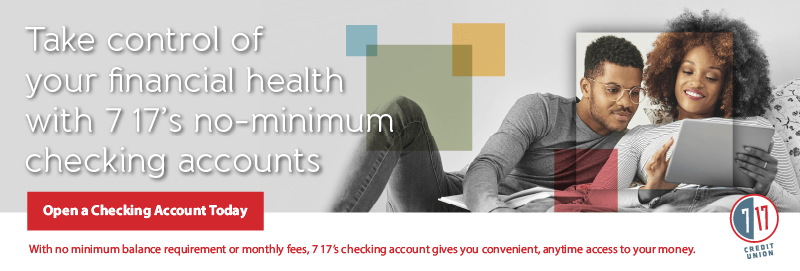- 7 17 Staff
Unraveling money myths that could drain your wallet

Navigating your personal finances can be confusing, especially when there’s misinformation floating around. Following bad advice can negatively affect your financial health. Here are some of the top money myths debunked.
Myth 1. All debt is bad. While it’s true that carrying a balance on your credit card or a high-interest loan can cost a significant amount in the long run, not all debt is bad. In fact, certain debt like mortgages and student loans can help you move forward and achieve goals. Plus, the interest rates on mortgages and student loans are typically lower than those on personal loans or credit cards, and the interest may be tax deductible.
Regardless of the kind of debt you take on, make sure you shop around for the best interest rates and never borrow more than you can afford to pay back on time.
Myth 2. Credit cards can only cause financial trouble. Credit cards can be dangerous if you use them to purchase items you can’t afford or readily repay. But if you avoid carrying a balance and pay your bills on time, they can help you build a solid credit score. Credit cards also offer greater liability protection than cash or debit cards.
Myth 3. You must carry a credit card balance to improve your credit score. While you do need credit to build credit, you don’t have to incur credit card debt in the process. Start by making small purchases and paying them off in full each month. Not only will you boost your credit, but you’ll save hundreds in interest.
Myth 4. I don’t earn enough to save. While there are cases where this is true, most people simply neglect to pay themselves first. While you may have the best intentions by waiting until the end of the month to pull money into your savings, it just doesn’t work. Set up auto-deposits to have money moved into your savings account as soon as you get paid. You can’t spend money you don’t have. Don’t be afraid to review your spending habits, either. Review your monthly subscriptions to see if there’s one or more you can live without, or try making your morning cup of coffee at home. Small sacrifices can make a big difference.
Myth 5. My partner manages our money, so I don’t need to worry about it. Money fights are the second leading cause of divorce behind infidelity. Never leave an important aspect of your life entirely in the hands of one person. Even the most trust worthiest individuals make mistakes. Make it a point to regularly communicate about family finances. Leaving the finances to one person is a lot of work and is something that is meant to be shared in a relationship.
Myth 6. I don’t need an emergency fund. I have credit cards. Credit cards can work for a one-time emergency like a major car repair, but you can’t live off a credit card for months if you were to lose your job. Financial advisors offer this rule of thumb: set up an emergency fund with enough money to sustain your living expenses for at least six months. For people living paycheck to paycheck, this might not be possible, especially without neglecting other important goals like paying down debt or saving for retirement. So here’s another suggestion: shoot for a starter emergency fund of $500. Not only is it easier to stash away, but it covers most small repairs or insurance deductibles.

These are just a small representation of money myths. For more ways to avoid widespread financials myths, visit:
https://www.listenmoneymatters.com/top-10-money-myths/
https://www.fidelity.com/viewpoints/personal-finance/6-money-myths
https://www.policygenius.com/blog/happy-friday-the-13th-debunking-major-money-myths/
https://www.investopedia.com/articles/basics/08/financial-myths.asp